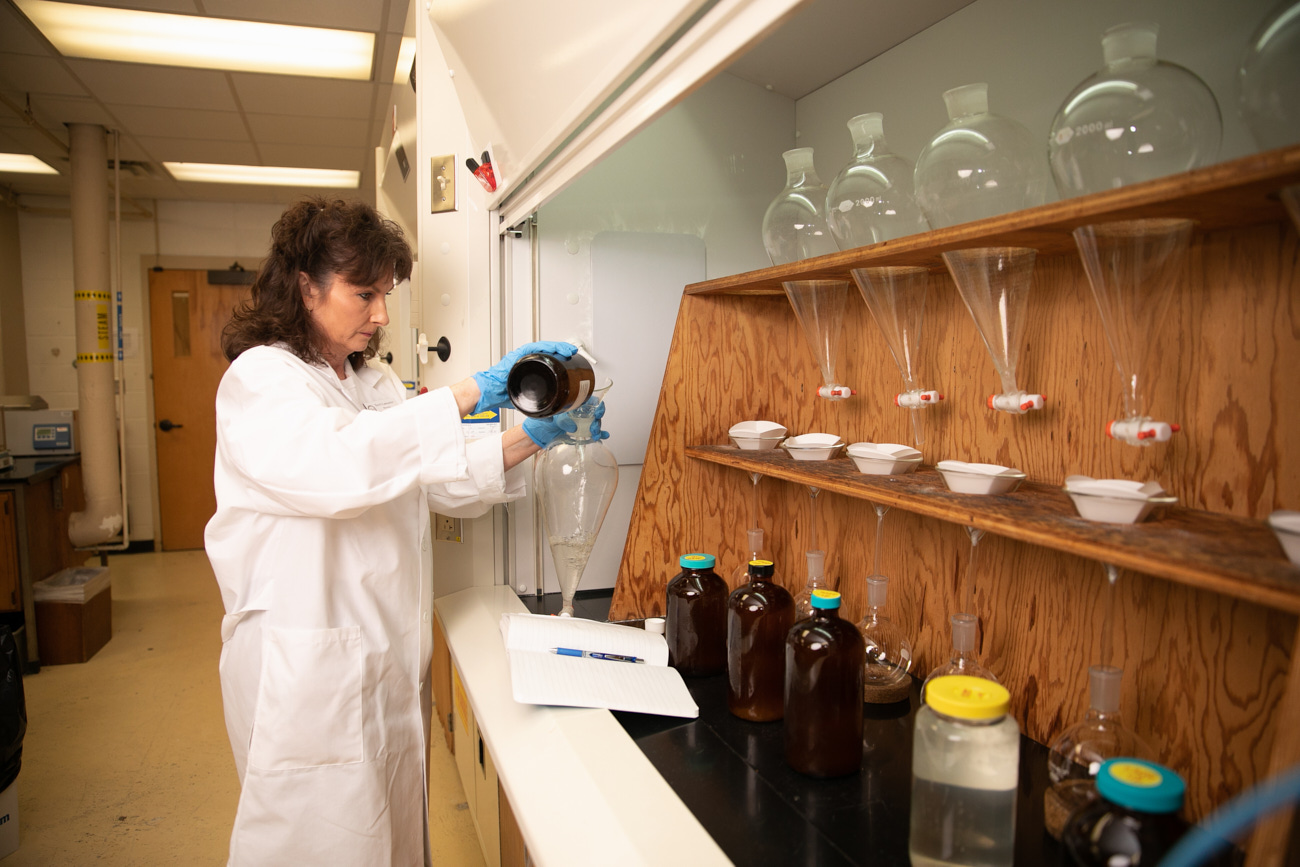

MONROE, LA – The University of Louisiana Monroe Environmental Analysis Lab is now accredited to conduct 85 wastewater, soil and animal tissue tests to protect the health of northeast Louisiana’s land, waterways and people. The Louisiana Department of Environmental Quality issued accreditation for six new types of chemical and biological tests to the laboratory, bringing the total number of local evaluations from 79 to 85. These approvals will save ULM more than $30,000 per year.
In 1979, the laboratory opened to assist the agriculture industry in the region by testing soil samples. In the four decades since, the lab has expanded its services to analyze 85 different types of toxicology tests, including mercury levels in fish tissue, pH levels in soil and potential lead in wastewater.
The six new tests include lithium, nitrate-nitrite, phosphorous, total kjeldahl nitrogen and two additional methods to test nitrate and chemical oxygen demand. Previously, the lab sent those samples to other organizations outside the region. This cost the institution money, as well as clients’ precious time.
“ULM will process the samples faster than sending them off to another lab,” said Terri Lancaster, director of the ULM Environmental Analysis Lab. “This will provide a great service to our clients as far as turnaround time.”
ULM has the only accredited wastewater analysis lab in the region. Clients range from private residents to the federal government. It regularly tests water quality from 12 different locations on Bayou DeSiard for the City of Monroe, as well as effluent water discharge from large industrial plants to small car washes. This testing keeps Louisiana’s waterways – and ultimately Louisiana’s people – safe and healthy.
“An industry has to meet EPA requirements to discharge water so it does not pollute the waterways. For example, if we dumped whatever we wanted into the Ouachita River, it would be detrimental to the ecosystem and it would be detrimental to the health of everyone who lives in the area,” Lancaster said.
Lancaster leads a team of five employees and student workers who serve the community with their passion for science. Many of the student workers are studying in ULM’s prestigious toxicology program, one of only six in the nation. Their academic studies and part-time job at the lab are teaching them how to help large ecosystems like the Ouachita River, but also smaller environments like football fields, golf courses and backyards.
Anyone in the public can submit a soil sample and receive recommendations for just $15. The scientists at ULM’s lab will make suggestions for types of plants that would grow best in that soil, as well fertilizers to use to help those plants grow to their full potential. For details on how to submit a soil sample, call the ULM Environmental Analysis Lab at 318-342-1948.
“When you protect the environment, you’re ultimately protecting those that live in the environment,” Lancaster said.